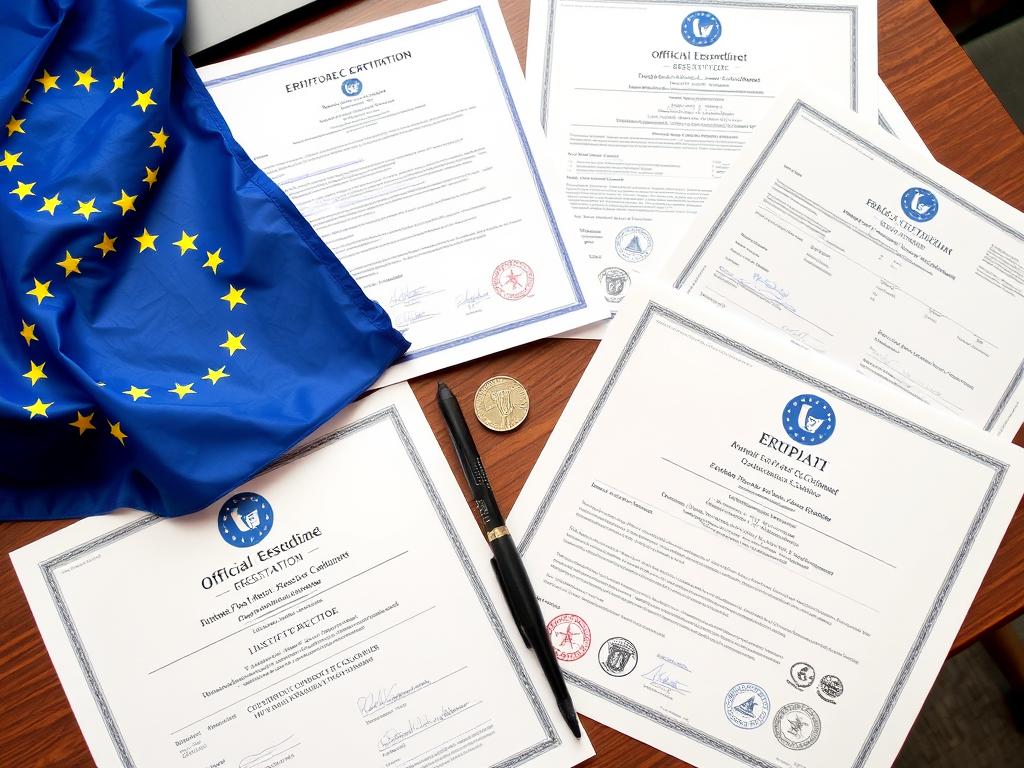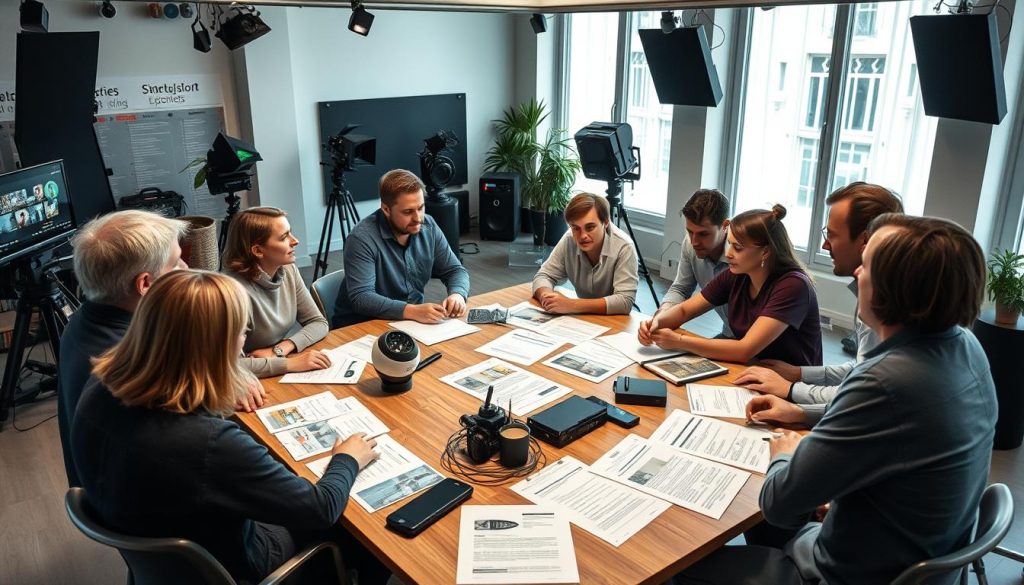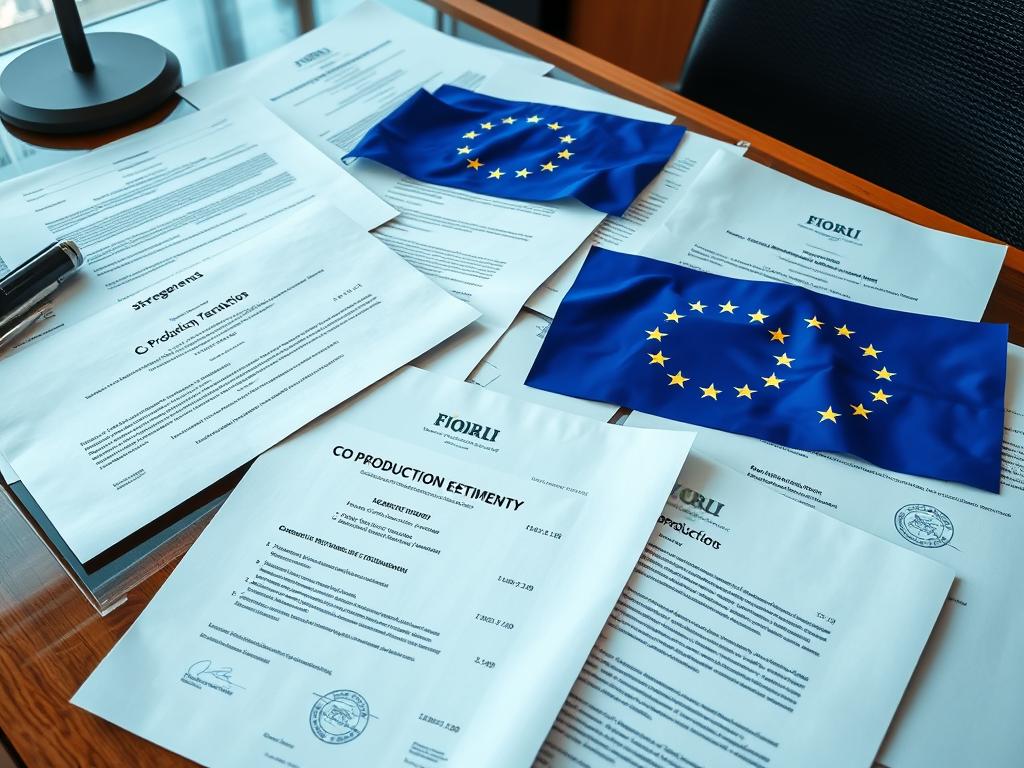Europe’s film industry is experiencing unprecedented growth, with generous tax incentives, diverse filming locations, and increasing demand from streaming platforms. For filmmakers and entrepreneurs looking to start a film production company in Europe, the timing couldn’t be better. This comprehensive guide will walk you through the essential steps to establish your production company and navigate the unique opportunities of the European market.
The European Film Industry: A Land of Opportunity
The European film market offers unique advantages that make it an attractive alternative to Hollywood. With combined annual production budgets exceeding €7.5 billion across the EU, the industry supports over 2 million jobs and continues to expand. Several factors make Europe particularly appealing for new production companies:
- Generous tax incentives and rebates (up to 30-40% in countries like France, Italy, and Ireland)
- Access to EU and national funding programs specifically for film production
- Rich diversity of filming locations across multiple countries
- Strong demand from global streaming platforms for European content
- Established film festival circuit for networking and distribution
With these advantages in mind, let’s explore the step-by-step process of establishing your film production company in Europe.
Step 1: Choose Your Business Structure and Location

The first critical decision is selecting the right European country for your business. Each offers different advantages in terms of tax incentives, funding opportunities, and industry infrastructure.
Top European Countries for Film Production
| Country | Tax Incentives | Funding Programs | Industry Infrastructure |
| France | Up to 30% tax credit (€30M cap) | CNC, TRIP, Creative Europe | Excellent (studios, post-production) |
| Germany | 25% rebate (€25M cap) | DFFF, German Federal Film Fund | Very good (Babelsberg Studios) |
| Ireland | 32% tax credit | Screen Ireland | Good (growing rapidly) |
Legal Entity Options
Most film production companies in Europe operate under one of these structures:
- Limited Liability Company (LLC/Ltd/GmbH/SARL): Offers personal liability protection while maintaining flexibility for taxes and operations. Most common for production companies.
- Sole Proprietorship: Simplest to establish but offers no liability protection. Suitable only for very small operations.
- Partnership: Allows multiple owners to share responsibilities but may expose partners to liability.
For most new production companies, the limited liability structure provides the best balance of protection and flexibility. Contact our team for specific advice on which structure best suits your situation.
Step 2: Define Your Production Company’s Niche

The European film market is diverse but competitive. Defining a clear niche helps your company stand out and attract the right projects and funding.
Popular Niches in European Film Production
Content-Based Niches
- Art house and independent films
- Documentary production
- Genre-specific (horror, sci-fi, etc.)
- Animation and visual effects
- Commercial and branded content
Service-Based Niches
- Production services for foreign shoots
- Post-production specialization
- Co-production facilitation
- Distribution and sales
- Equipment rental and crew services
“Finding your niche isn’t about limiting your options—it’s about focusing your resources where you can make the greatest impact. In Europe’s diverse film landscape, specialization is often the path to success.”
Step 3: Create a Comprehensive Business Plan

A solid business plan is essential for securing funding and guiding your company’s growth. European investors and funding bodies expect detailed, realistic plans that demonstrate market understanding.
Essential Components of Your Business Plan
- Executive Summary: Brief overview of your company, vision, and objectives
- Company Description: Legal structure, location, and team credentials
- Market Analysis: European film industry trends and your target audience
- Service/Product Line: Production services and content you’ll create
- Marketing Strategy: How you’ll attract clients and projects
- Funding Requirements: Initial capital needs and potential sources
- Financial Projections: 3-5 year forecast including cash flow
Your business plan should also address how you’ll navigate European co-production treaties and funding mechanisms, which can significantly impact your financial model.
Pro Tip: Include a section on how you’ll leverage specific European funding programs like Creative Europe MEDIA, national film funds, and tax incentives. This demonstrates your understanding of the European landscape.
Step 4: Secure Funding and Financial Resources

Funding is often the biggest challenge for new production companies. Europe offers unique funding opportunities not available elsewhere.
European Funding Sources
Public Funding
- Creative Europe MEDIA program
- National film funds (CNC, FFA, etc.)
- Regional development funds
- Public broadcaster co-production
Private Investment
- Angel investors and film financiers
- Production company partnerships
- Pre-sales and distribution advances
- Private equity film funds
Alternative Funding
- Crowdfunding platforms
- Brand partnerships and product placement
- Tax shelter investments
- Equipment and service in-kind deals
Many European countries offer specific tax incentives for film production. For example, France’s TRIP program provides a 30% tax rebate for qualifying productions, while Ireland offers up to 32% tax credit on eligible expenditures.
Funding Application Tip: European funding applications often require cultural elements that reflect European heritage or values. Consider how your projects can incorporate these elements to increase funding eligibility.
Step 5: Build Your Core Team and Network

A strong team is the foundation of any successful production company. In Europe’s collaborative film environment, your network is equally important.
Essential Team Roles
- Head of Development: Oversees project selection and creative direction
- Head of Production: Manages budgets, schedules, and physical production
- Head of Post-Production: Supervises editing, visual effects, and delivery
- Head of Distribution/Sales: Handles marketing and content distribution
- Financial Controller/Accountant: Manages finances and production accounting
- Legal Counsel: Specializes in entertainment and European business law
For new companies, these roles might be filled by partners or contracted professionals until your business grows. Building relationships with reliable freelancers and service providers is essential in the project-based film industry.
Building Your European Network
- Attend major European film festivals (Cannes, Berlin, Venice)
- Join industry associations like European Film Promotion
- Participate in co-production markets and forums
- Connect with film commissions in your target countries
- Build relationships with distributors and sales agents
Step 6: Establish Your Brand and Marketing Strategy

Your brand identity helps you stand out in a crowded market and attracts both clients and creative talent. European audiences and partners often value authenticity and artistic vision.
Branding Elements
- Company Name: Choose something memorable that reflects your niche
- Visual Identity: Logo, color scheme, and typography
- Website: Professional portfolio showcasing your work and team
- Showreel/Portfolio: Examples of your production capabilities
- Mission Statement: Your company’s purpose and values
Marketing Channels for European Film Production Companies
Industry-Specific Marketing
- Film festival presence and submissions
- Industry publication features
- Co-production market participation
- Film commission registrations
Digital Marketing
- SEO-optimized website with portfolio
- Social media presence (LinkedIn, Instagram)
- Industry-specific directories
- Email newsletters to industry contacts
Step 7: Navigate European Regulations and Co-Production Treaties

Understanding European regulations and co-production opportunities is essential for maximizing your company’s potential in the region.
Key Regulatory Considerations
- Work Permits and Visas: Requirements for non-EU crew and talent
- Labor Laws: Working hour restrictions and crew rights
- Copyright Law: European intellectual property protections
- Data Protection: GDPR compliance for talent and customer data
- Insurance Requirements: Production insurance specifics by country
Co-Production Advantages
European co-production treaties allow productions to be considered “national” in multiple countries, opening access to multiple funding sources and markets.
Co-Production Benefit: A French-German co-production can access funding from both countries’ national film funds, potentially covering up to 60-70% of the production budget through combined incentives.
The European Convention on Cinematographic Co-Production provides a framework for official co-productions between signatory countries, while bilateral treaties offer specific advantages between partner nations.
Case Study: CineWave Studios’ European Success Story

Berlin-based CineWave Studios demonstrates how a focused strategy can lead to rapid growth in Europe’s film industry. Founded in 2018 by three film school graduates, the company started with modest resources but a clear vision.
Key Success Factors
- Niche Focus: Specialized in high-concept sci-fi shorts and features with European themes
- Strategic Partnerships: Formed co-production relationships with French and Polish companies
- Funding Mastery: Successfully secured German Federal Film Fund and Creative Europe support
- Festival Strategy: Built reputation through strategic festival submissions and networking
- Streaming Relationships: Leveraged festival success to secure a multi-project deal with Netflix’s European division
Within three years, CineWave grew from a three-person operation to a team of fifteen with an annual production slate of two features and several shorts. Their breakthrough came when their second feature, “Digital Horizon,” won a special jury prize at the Berlin International Film Festival, catching the attention of streaming platforms.
“We succeeded by embracing our European identity rather than trying to imitate Hollywood. Our stories reflect European perspectives but with universal themes that travel well internationally.”
Bringing Your European Film Production Vision to Life
Starting a film production company in Europe offers unique advantages in today’s global entertainment landscape. With generous funding opportunities, diverse locations, and growing demand for content, European-based production companies are well-positioned for success.
The key is approaching the venture with thorough planning, understanding of the regional landscape, and a clear creative vision. By following the steps outlined in this guide and learning from successful case studies, you can navigate the challenges and capitalize on the opportunities of the European film market.
Remember that each country offers different advantages, and the best location for your company depends on your specific goals, niche, and resources. Whether you choose France’s robust tax incentives, Germany’s technical infrastructure, or Ireland’s growing industry, Europe provides fertile ground for film production entrepreneurs.
Ready to Bring Your Film Production Company to Europe?
Our team of industry experts specializes in helping filmmakers and entrepreneurs navigate the European film landscape. From legal setup to funding applications and co-production opportunities, we provide personalized guidance for your specific vision.







